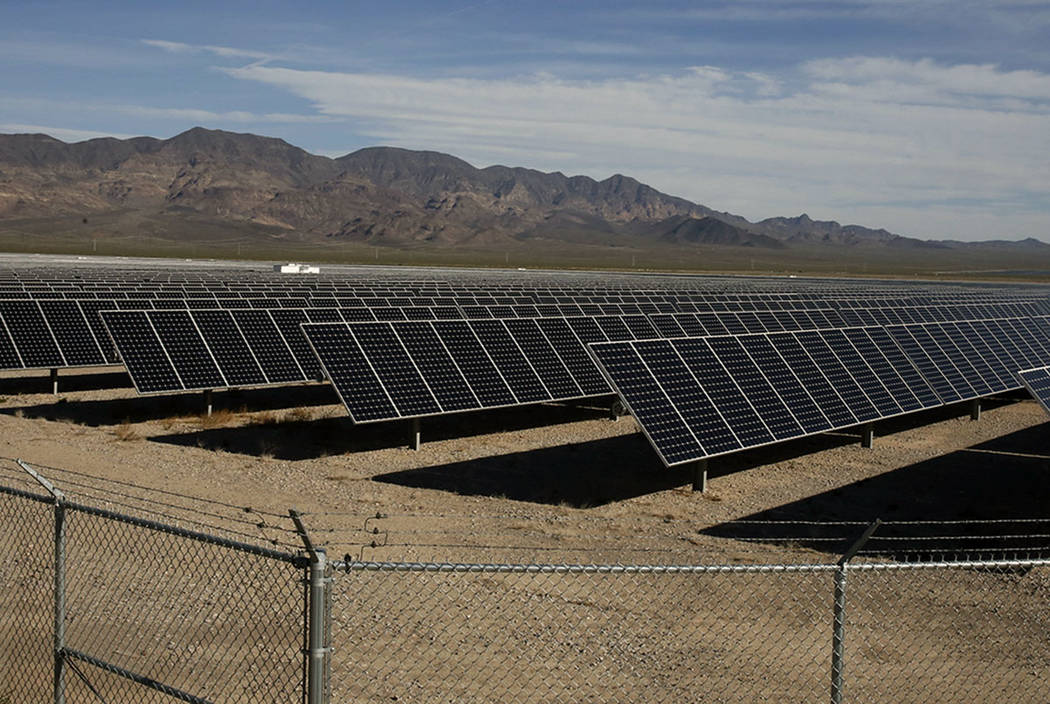Taylor says Question 6 would increase costs dramatically

Question 6 would cost Nevada families an average of $2,000 per year, according to James Taylor, the Heartland Institute’s senior fellow for energy policy. That’s because wind and solar power are much more expensive than conventional power, Taylor said.
Question 6 is a constitutional amendment that would require Nevada to purchase 50 percent of its power from renewable sources by 2030.
“It would increase costs dramatically,” said Taylor while filming Nevada Politics Today. Taylor cited a study from the left-leaning Brookings Institute that concluded the best path to a low-carbon future isn’t through wind or solar power.
“What they did is the looked at the comparison of costs between various energy sources. What they found is that if you replace conventional power with wind power, electricity prices go up 50 percent.”
The cost situation is even worse when it comes to solar power, Taylor said. “If you replace conventional power with solar power, electricity prices triple. That’s a tremendous amount of money that would be disappearing from household budgets.”
Taylor estimated that Question 6 would cost Nevada households more than $2,000 per year in direct costs and the cost of energy built into the purchase of products and services.
On a previous episode of Nevada Politics Today, Karen Wayland, executive director of the Clean Energy Project, said Question 6 will lower rates. Tayler strenuously disagreed.
“What she’s saying is not true,” said Taylor. “If you look at the states that have imposed renewable power mandates, there are 29 states that have them. The states that have imposed them, their electricity prices are going up 50 percent faster and 50 percent higher than the states that don’t.”
Taylor also questioned why a supposedly superior product would insist on having a mandate.
“It’s common sense that if wind and solar power were cost competitive or as she claimed less expensive, you wouldn’t need a mandate,” he said. “People would be flocking to it anyway. The fact that they feel they need a mandate tells you all you need to know about which energy source is more expensive.”
Several large Nevada companies have left NV Energy and purchased renewable power. While he didn’t know the particulars of those contracts, Taylor said the purchases could have been influenced by a company’s concern for its “public image.”
“One of the benefits of a free market for energy sources is that you can purchase more expensive power, like wind and solar, but with the free market, you’re still going to be paying less than you would without that reform,” he said.
For instance, after Texas allowed consumers to purchase energy on an open market, the state added more wind power, Talyor said. It wasn’t the cheapest option, but people chose it freely.
Talyor also dismissed the idea that conventional fuel sources benefit from large governmental advantages.
“Wind power alone — by itself — receives more subsidies than all conventional energy sources combined” he said. “And that’s while producing just a fraction of the energy that people use. The same applies to solar power. Solar power, by itself, receives more subsidies than all conventional energy sources combined. So when they talk about leveling the playing field on subsidies, they’re hoping that people are not looking at the data or not checking the facts.”